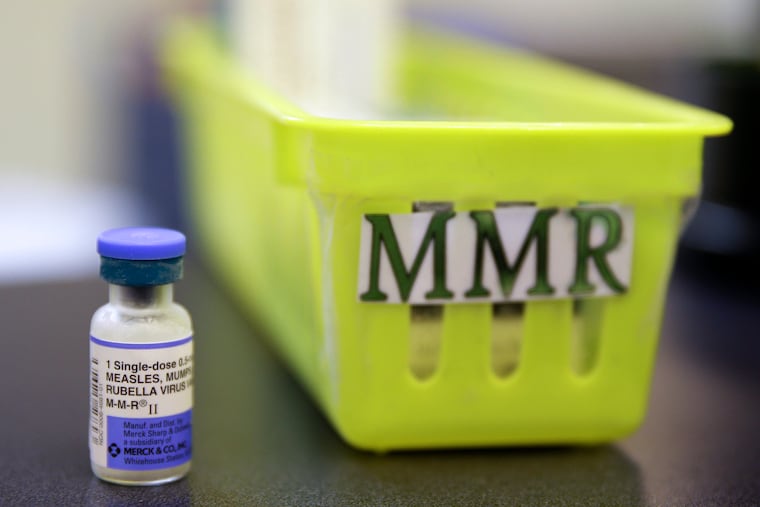Depending on when you were born, you may need a booster shot of the measles vaccine
Those who were vaccinated in the 1960s may not be protected against measles. Between 1963 and 1967, roughly 1 million people were immunized with the so-called “killed” measles vaccine, which was later found to be ineffective.

You’ve likely read that the measles were eliminated in the United States in 2000. So why are we seeing an outbreak of the most cases in 25 years?
When measles were eliminated in 2000, that meant the country had gone 12 months without any “continuous disease transmission” — that is, there were no areas where the disease was endemic or homegrown, reported the New York Times.
However, the recent national outbreak can be attributed to a combination of how measles is transmitted, the effectiveness of the vaccine, and when you were vaccinated.
Every year unvaccinated travelers — and two out of three of them are Americans — get the measles while visiting other countries and bring it back to the U.S., potentially spreading it to other people, according to the Centers for Disease Control and Prevention.
If the vaccination rates in a given area fall below a certain level — between 93 percent and 97 percent of the population to achieve so-called herd immunity — the risk of outbreak increases. As more people in given areas have chosen to not have their children vaccinated, the risk of infection has increased, notes the CDC.
Some parents who believe vaccines pose health threats choose to not immunize their children. In fact, a proposed bill in the Pennsylvania House of Representatives seeks to keep doctors from refusing to treat patients whose families decide against immunization. Activists and parents rallied in Harrisburg in support of the proposed legislation Tuesday.
Generally, the CDC considers people who have received two doses of the highly effective measles, mumps, and rubella (MMR) vaccine to be 97 percent effective in protecting against measles. But there are exceptions.
Gary A. Emmett, a professor of pediatrics with Thomas Jefferson University, said even the best vaccine can wane in effectiveness.
“No vaccine works 100 percent of the time, and it can wear off over time,” Emmett said.
Another issue is when you got vaccinated. Those who were vaccinated in the 1960s may not be protected against measles. Between 1963 and 1967, roughly one million people were immunized with the so-called killed measles vaccine, which was later found to be ineffective, according to the CDC. Those who got the “live” measles vaccine during that time are likely protected.
If you were vaccinated in the 1960s but aren’t sure which vaccine you received, the CDC advises that you get a blood test to determine if you are immune to measles or get a booster shot of the current live MMR vaccine.
Paul A. Offit, director of the Vaccine Education Center at Children’s Hospital of Philadelphia, said that if you were born before 1957, you likely have lifelong immunity from having contracted measles as a child. Additionally, if you were born after 1989, you probably have immunity from two doses of the vaccine.
But, Offit said, those born during the in-between years probably had only one shot, which lessens the effectiveness of the vaccine against measles to 93 percent, according to the CDC.
“If I was born between 1957 and 1989, I would probably get a booster dose,” Offit said.